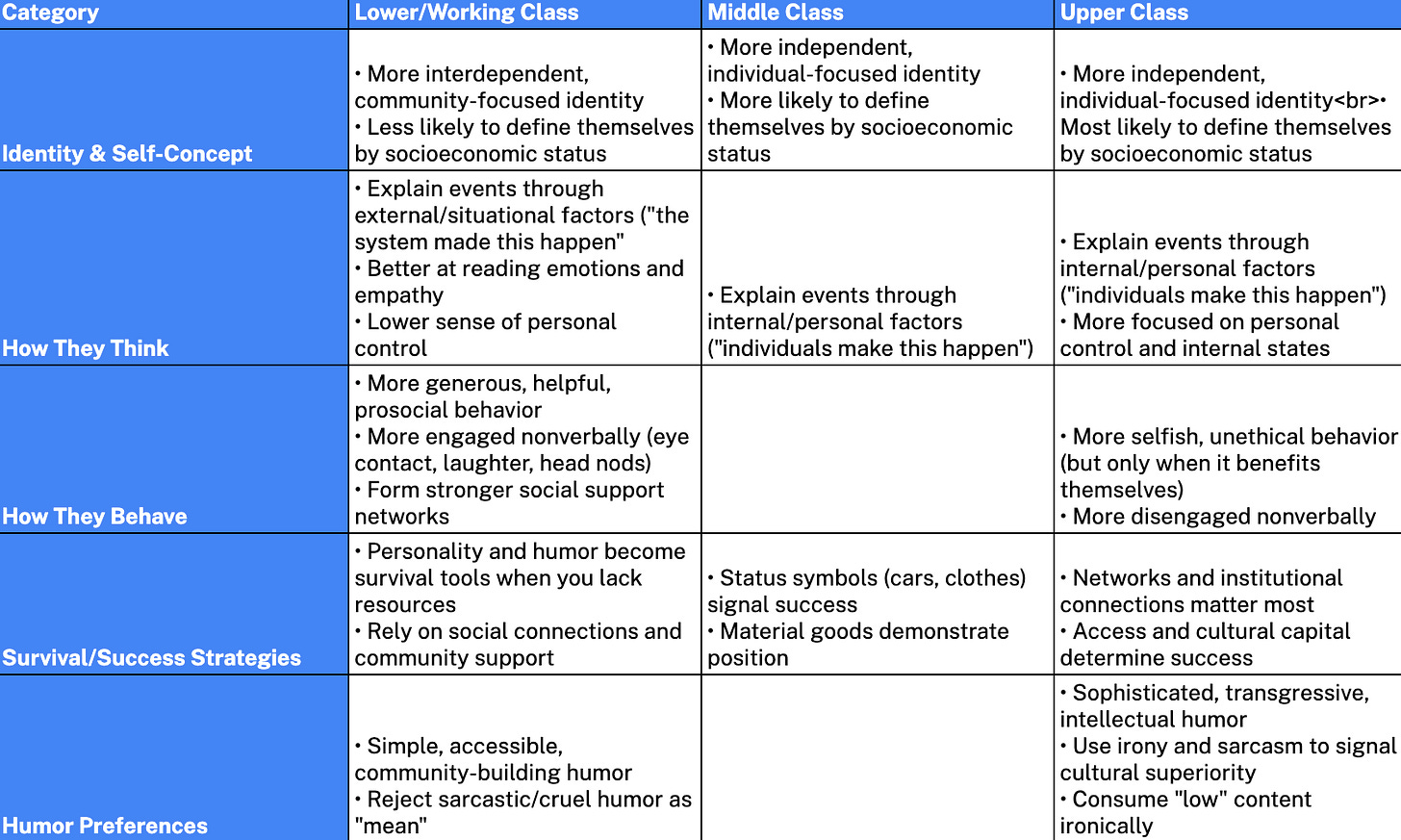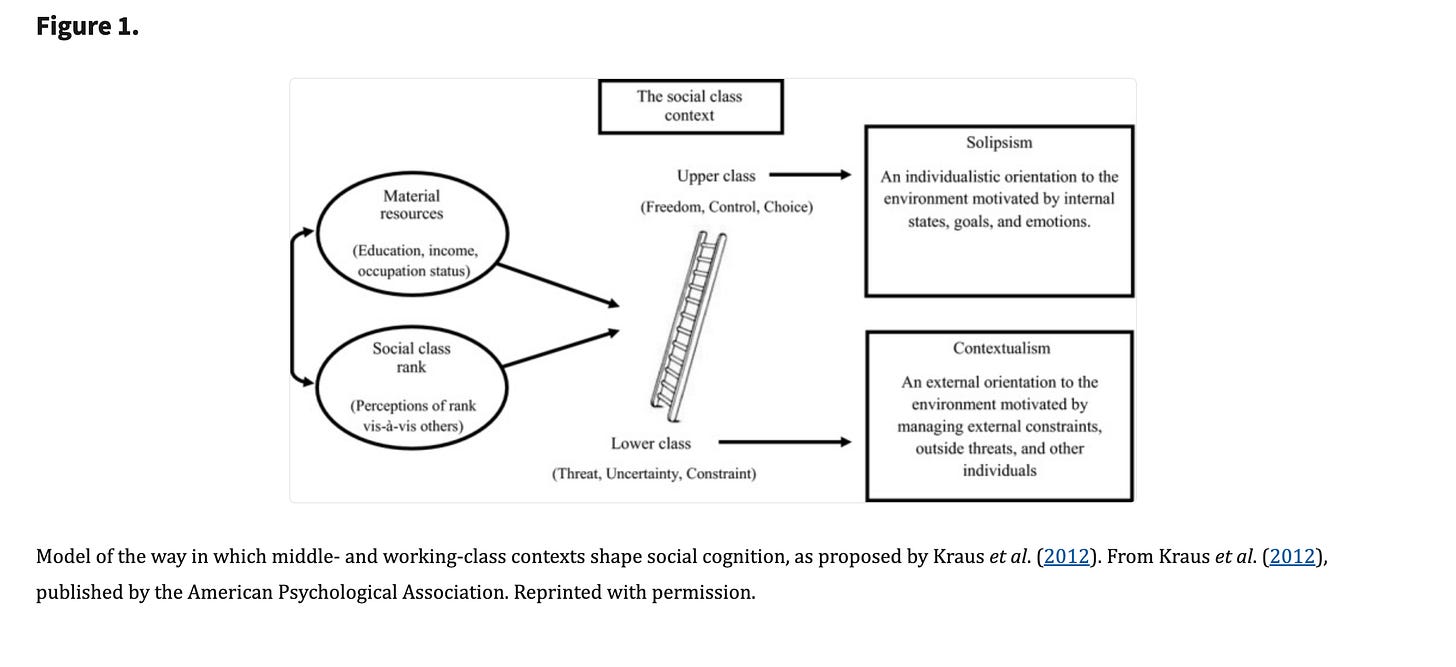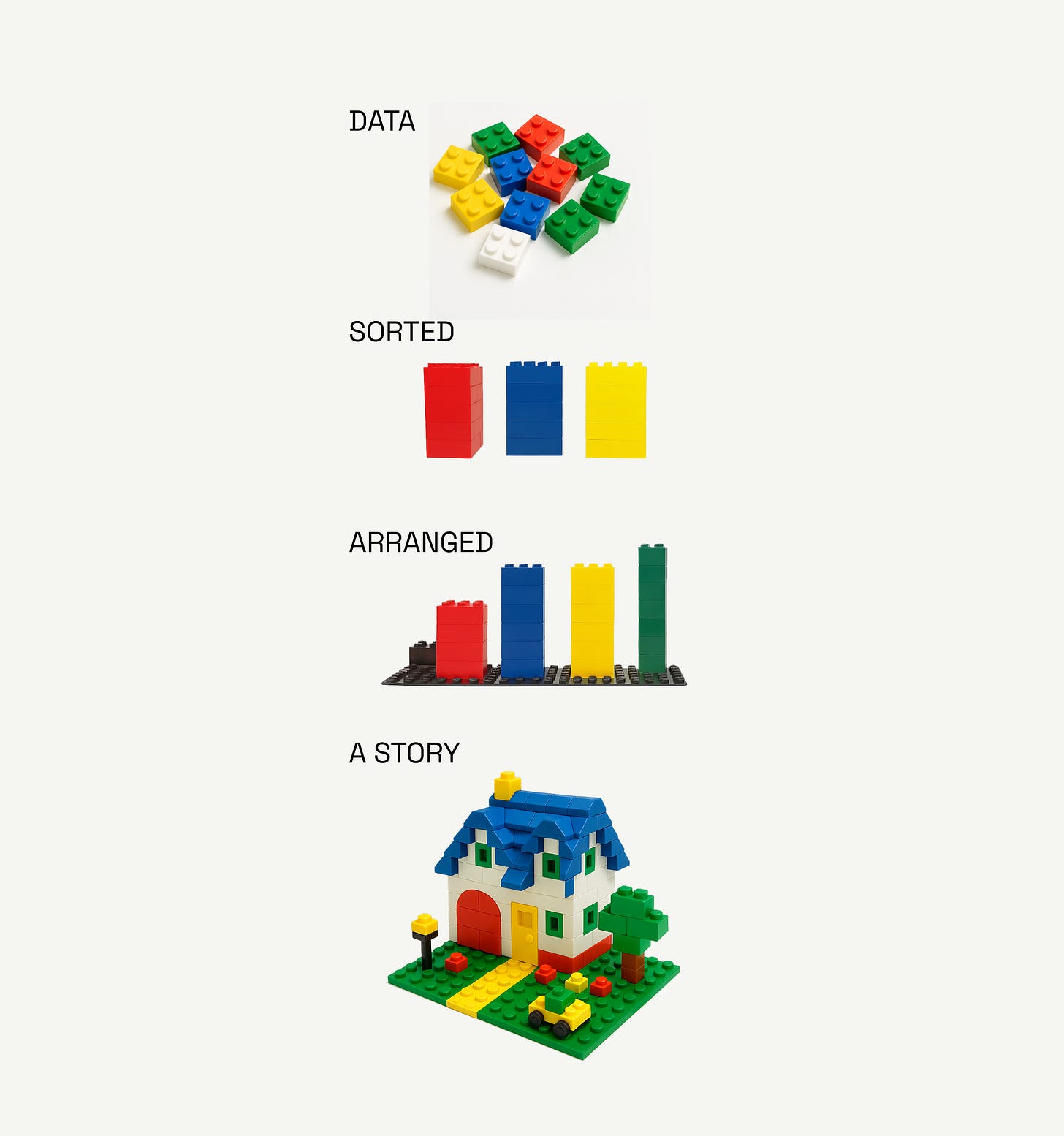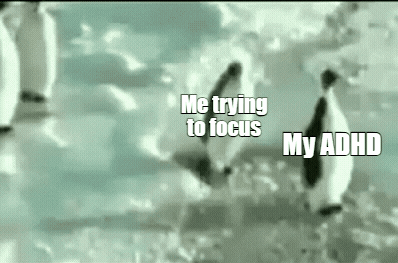The most dangerous thing you can be is complicated. Because complexity is the enemy of execution.
A founder called me last week, panicking about her competition. "They're going to destroy my business," she said.
“Wrong enemy.” I replied. “Your competitor is a distraction.”
Because after 10 years as a SaaS founder I can confidently say that your competition isn't another company. It's complexity. Because complexity costs time. And time kills faster than any competitor ever will.
THE UNIVERSAL LAW OF DECAY
I learned this during a disaster meeting early in the startup journey. Perfect slides. Rehearsed presentation. Confident delivery.
At the end, an advisor asked: "So what do you actually need?"
Silence.
I'd buried my ask so deep in complexity that nobody knew why they were there.
Everything decays into complexity without constant intervention.
Your body without exercise. Your startup without focus. Your relationship without intention. Your communication without discipline.
In startups world, early days are simple because you have one goal. Then success happens. Requests multiply. Features creep in. Each addition makes perfect sense alone. Together, they create chaos.
Decay happens faster in our current age. The internet accelerates everything. Trends move faster, products find us through targeted ads, and tech infrastructure strengthens—leaving companies in its wake. The data backs this up: Average business lifespan dropped from 61 years in 1958 to 18 years today. Software companies die the fastest.
WHY YOUR BRAIN CREATES COMPLEXITY
Three things make you hard to comprehend. You communicate in a complex way because:
Mental fog - Lack of mental clarity. You don't know your goals.
Emotional chaos - Lack of emotional control. Big feelings derail prioritization.
Confidence gaps - Lack of confidence. Doubt makes everything harder.
Emotional dysregulation is the worst. The hardest thing to do when you're emotional is stick to a plan. Big feelings are extremely distracting when it comes to prioritization.
Complexity isn't just a business problem — it's a defense mechanism. We make things complex when we're afraid of being judged for simplicity. Complexity feels sophisticated. Simple feels stupid. But customers don't buy sophisticated. People don’ follow sophisticated. They buy clear.
My rule: When embarrassed or angry, shut up for 48 hours. That's usually enough time to simmer down and see clearly.
COMPLEXITY KILLS COMPREHENSION
When we communicate, we generally have one of these goals:
To educate
To inspire
To validate
To entertain
To problem solve
To negotiate or persuade
To challenge
To express or process
The power is in the reduction. Instead of navigating the messy, infinite variations of human interaction, you can ask: "What am I actually trying to do here? Am I trying to educate this person, or validate them, or challenge them?"
That clarity immediately improves effectiveness. According to neuroscience, the brain believes what you tell it. With clarity, you can align others.
Complexity obscures purpose. When people don't know which mode they're in, conversations meander and fail. Simplicity enables execution — it's actually usable, unlike vague advice to "communicate better."
Human working memory can only process 7±2 pieces of information simultaneously. When cognitive load exceeds this limit, comprehension and performance drop dramatically (Cognitive Load Theory, John Sweller).
The framework above reminds me of when I told my then 4-year-old that we were going to Whole Foods. He then replied with “Do they call it that because all of the food has holes in it?” Kids are very good at simplicity.
"Everything should be made as simple as possible, but not simpler." — Einstein
WHEN COMPLEXITY IS REAL
Some ideas are genuinely complex. Brain surgery. Climate modeling. Tax law.
But even complex ideas can be simply communicated. The trick is layers.
Layer 1: The headline truth (what people need to know)
Layer 2: The supporting evidence (why it's true)
Layer 3: The technical details (how it works)
What, why, and how will cover the issue, context, and solution. Einstein didn't explain relativity by starting with tensor calculus. He started with: "Imagine you're on a train..."
COMPLEXITY IS COGNITIVELY EXPENSIVE
When you start with "how" and forget "what" and "why," your listener is trying to connect dots instead of following your point. This often hurts you more than it hurts them.
When you explain what you do, can someone understand it in 10 seconds? If not, what are you hiding behind the complexity?
CLARITY REDUCES LIABILITY
Clarity also reduces liability. When my mom spent a prolonged period in the hospital, signs were posted on her door. Signs that told anyone who walked in how, when, and if she could stand. How, when, and if she could eat. Even a handwritten note asking men to knock before entering, since my mom wears hijab. And I have no doubts that the signs have saved lives and — for sure — billions in malpractice lawsuits across hospitals in the United States.
YOUR CLASS MAY REVEAL HOW YOU VIEW EFFECTIVE COMMUNICATION
Research reveals different social classes master different communication strategies:
(Above is a screenshot from my own notes of research from “The psychology of social class: How socioeconomic status impacts thought, feelings, and behaviour,” Antony S R Manstead, you get the gist)
Working class: Personality and humor become survival tools when you lack resources. Studies show lower social class individuals rely heavily on affiliative humor to strengthen social bonds and build community support.
Middle class: Status symbols tell your story. Your car, clothes, house—these visual displays signal success and social mobility.
Upper class: Networks and access are credentials. Research shows 70-85% of elite jobs are filled through personal networks, not public applications.
LET’S DOUBLE DOWN ON CLASS
Class is especially relevant when it comes to how you communicate, because per the research (image above):
Material resources (your income, education, job status) + Social class rank (how you perceive yourself compared to others) = Fundamentally different ways of thinking
THERE ARE 2 COGNITIVE STYLES (INFORMED BY CLASS)
UPPER CLASS → "SOLIPSISM"
Focus: Internal states, personal goals, emotions
Mindset: "I control my environment"
Context: Freedom, Control, Choice
Thinking: "What do I want? How do I feel? What are my goals?"
LOWER CLASS → "CONTEXTUALISM"
Focus: External constraints, threats, other people
Mindset: "The environment controls me"
Context: Threat, Uncertainty, Constraint
Thinking: "What's happening around me? Who else is involved? What external factors matter?"
This is relevant because the way we communicate isn't just about personality — it's about survival strategies. When you have resources and control (i.e., you grew up rich), you can afford to focus inward on your own desires and goals. When you face constant external threats and constraints (i.e. you grew up poor or in conflict), you must stay hyperaware of your environment and other people. Your brain adapts to your material reality. Scarcity makes you externally focused. Abundance makes you internally focused. And these different cognitive styles create entirely different approaches to communication, problem-solving, and life. (I also referenced some information here from a paper called “Class-Based Differences in the Use of (Aggressive) Humor: The Mediating Role of Empathic Concern,” Navarro-Carillo)
This is why I say your parents' emotional regulation is a hidden form of generational wealth. Regulated parents have an easier time producing successful adults.
When the material odds are against you, focus on regulation. If you grew up focused on survival, be aware that your hyper-vigilance can become a competitive disadvantage in professional environments.
You didn't choose your challenges, but your brain is plastic. You can outgrow them. And recognize that there is power in focusing on relationships, humor, and reading the room (attributed with growing up lower class — i.e. contextualism). It’s probably why actors and comics tend to be both extremely charismatic and from less-than-wealthy backgrounds.
Based on your background, which communication strategy do you default to: personality/humor (working class), status symbols (middle class), or networks/credentials (upper class)? Are you using the right strategy for your audience?
HOW TO COMMUNICATE WELL
Simplicity is clarity. Even a complex idea can be simply communicated. Complexity creeps in when you:
Give raw information (boring)
Show data without context (confusing)
Tell jumbled stories (unclear)
Dump everything at once instead of building understanding layer by layer (muddied)
"My work speaks for itself" isn't simplicity. It's arrogance. You have to learn how to tell a story. And the story should be in response to the goal you’ve set out for the conversation.
PEOPLE DON'T LIKE COMPLEXITY
A famous jam study proved this. When customers were offered 24 varieties of jam, 60% stopped to sample, but only 3% actually bought. When offered just 6 varieties, 40% stopped but 30% bought—a 10x conversion rate. Each addition seems logical in isolation, but together they kill action (more in the Paradox of Choice).
THE ADHD ADVANTAGE
I like reading about ADHD and productivity because I have ADHD, but I am also very productive. I’ve always been pretty productive, and I have always known they were related but only recently sought out the research. ADHD is big and complex, I can just speak to my experience.
People with ADHD have a hidden superpower: natural complexity filters.
While neurotypical people feel obligated to consider every edge case, ADHD brains ignore irrelevant noise. They hyperfocus on what matters and skip the complexity theater of endless meetings.
Research shows this creates three distinct advantages:
Natural filtering: ADHD brains process what matters, ignore what doesn't
Hyperfocus power: Intense concentration cuts through complex systems
Anti-bureaucracy instinct: They skip meetings and build solutions
When others debate 47 implementation options, the ADHD person is already building something worth trying.
BE LESS COMPLEX
Amazon's "disagree and commit" principle isn't about decisions. It's about killing complexity before it spreads.
When Steve Jobs returned to Apple, he killed 70% of their product line in one meeting. The rainbow of colored computers? Gone. The dozen different monitors? Eliminated. One decision. Brutal simplicity. Stock price doubled in 12 months. Apple doesn't make the most powerful computers. They make the least complex powerful ones.
Google's homepage: same search box and two buttons for 25 years.
Simple can be harder than complex: You have to work hard to get your thinking clean to make it simple. But it's worth it in the end because once you get there, you can move mountains. — Steve Jobs
COMPLEXITY COSTS TIME, TIME KILLS EVERYTHING
Complexity increases time. Time kills everything.
Your antidote? Stories. Clear communication. Ruthless simplification.
People in every industry who tell the best stories win because they cut through noise and make complex things simple.
Stay simple. Stay alive.
If you liked this, here are more posts on leadership by yours truly.
Hey pal! If you made it this far, please leave me a like/comment. It helps others find me. Thanks!
Did you catch last week’s post?











Simple and straight to the point…loved your piece
Layla, I love this piece so much! As always, another pure gem. This came into my inbox right before a major presentation and I was able to read it prior to walking in. Such a timely piece. Thank you, THANK YOU!